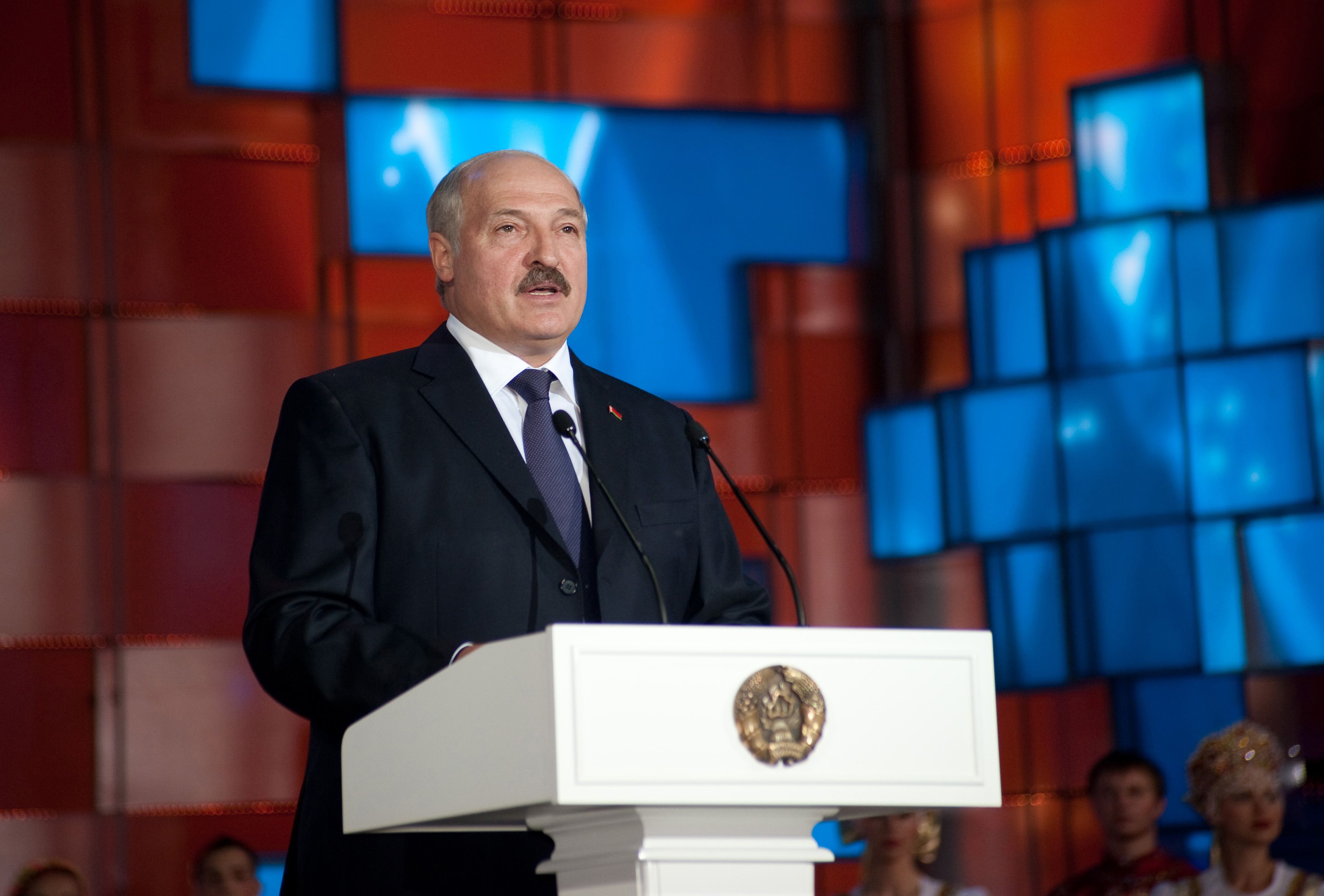The State and Future of U.S.-Belarus Relations

Until the presidential elections of August 2020, the Belarusian authorities had been trying to implement a “multi-vector foreign policy” concept consisting of expanding contacts with partners other than Russia and presenting Belarus as a state striving for neutrality and acting to strengthen security in Europe. Improving relations with the U.S. was part of the concept. The improvement in these relations was also the result of the positive assessment by the U.S. of Belarusian involvement in the peace process in Ukraine and the change in approach to Belarus by the Trump administration, which increased its overall involvement in Eastern Europe. This trend was reversed after the rigged presidential elections, when Alexander Lukashenka accused Western states of inspiring the protests, interfering in Belarus’ internal affairs, and asked Russia for support.
Political Relations before the Elections in Belarus
Compared to previous years, U.S.-Belarusian relations improved significantly in the 2018-2020 period. Both countries decided to re-raise diplomatic relations to the rank of ambassadors. They developed contacts in the area of regional security (joint meetings under the U.S.-Poland-Ukraine-Belarus format in 2019), including energy (the first supplies of American crude oil to Belarus were made via the ports of the Baltic states in 2020). Visits to Belarus were paid in 2019 by U.S. National Security Adviser John Bolton and in 2020 by Secretary of State Mike Pompeo. In 2015, the U.S.—in connection with the release of all political prisoners in Belarus—eased sanctions imposed in 2006 on Belarusian enterprises in mainly the petrochemical industry.
The American actions raised hope among the Belarusian authorities that they could expand economic contacts. Belarus counted on an influx of American investment, including infrastructure needed to transport crude oil from the Baltic states and shipments from the U.S. In turn, the goal of the American policy towards Belarus was to promote democratic values combined with the development of economic relations. It was also an element of U.S. actions towards Russia by supporting the independence of its neighbours.
The Trump Administration and Belarusian Presidential Elections
The improvement in relations ended with the rigged presidential elections in Belarus on 9 August 2020. In response to the sudden turn to repression and human rights violations against protesters, the U.S. condemned the Belarusian authorities and withdrew their cooperation, among others, in the energy sphere. The day after the rigged vote, the U.S. Department of State issued a statement questioning the election’s fairness and calling on the Belarusian authorities to refrain from suppressing peaceful demonstrations. Secretary of State Pompeo emphasised the need for U.S. cooperation with the European Union to resolve the political crisis in Belarus. The State Department made clear the U.S. had no intention of directly influencing the internal situation in Belarus, even through the democratic opposition. Nevertheless, in September 2020, Deputy Secretary of State Stephen Biegun met in Vilnius with opposition leader Sviatlana Tsikhanouskaya and during the conversation stressed the importance of Belarusians’ right to freely choose their authorities. In turn, in response to the inauguration of Lukashenka’s next term in office, the State Department stated that “the U.S. cannot consider him the legally elected leader of Belarus”.
On 2 October 2020, the U.S. administration decided to impose sanctions on eight officials from the Belarusian government, security services, and the Central Election Commission (CEC). The restrictions were announced in parallel with sanctions introduced by the EU. By the end of 2020, the list was expanded to include another 40 people and four institutions, including the CEC and the KGB Alfa Group state security unit.
Congress also weighed in on Belarus. Both the Senate and House foreign affairs committees commented on the violation of human rights by the Belarusian authorities. With bipartisan consensus, Congress called on the regime to stop using force against its citizens and to comply with the provisions of the International Covenant on Civil and Political Rights, to which Belarus is a party. In December 2020, thanks to a joint initiative by Republican and Democratic members of Congress, the “Belarus Democracy, Human Rights, and Sovereignty Act” was adopted, extending presidential powers to impose sanctions related to election fraud and the use of force against protesters, and refusing to recognise the results of the August vote.
The Biden Administration’s Approach to Belarus
In the campaign, Biden emphasised the overarching role of human rights and democratic values in foreign policy. He accused President Donald Trump of being passive on the issue of repression in Belarus and called Lukashenka a “dictator”. Biden also pledged to cooperate with Tsikhanouskaya and the democratic opposition for a peaceful change of power in Belarus. After taking office, Biden did not reverse Trump’s April 2020 decision to appoint Julie Fisher (a career diplomat, previously stationed in Russia) as ambassador to Belarus. However, due to the tensions in bilateral relations, Fisher has so far not received permission from the Belarusian authorities to enter the country.
While the Biden administration is continuing to put diplomatic pressure on Belarusian authorities, it has not yet decided to use the economic sanctions against the regime enacted in U.S. legislation and ready to be re-imposed. However, in March this year, Deputy Assistant Secretary of State George Kent, responsible for relations with Belarus, stated that in April there is the possibility of reinstating the economic sanctions imposed on Belarusian state companies in 2006. Kent confirmed that it would depend on an improvement of human rights, in particular the release of about 280 political prisoners. The reintroduction of economic sanctions would harm the regime’s ability to obtain foreign currency, but also increase dependence on the export of petrochemical products to Russia and China. A State Department spokesman also condemned the arrests and repression of representatives of the Union of Poles in Belarus, independent of the Belarusian authorities, including its head, Andżelika Borys, and the journalist Andrzej Poczobut. The U.S. will maintain a policy of support for independent media and human rights organisations.
Conclusions and Recommendations
Although U.S. policy on Belarus is not a priority for the Biden administration right now, the situation in that country will continue to be a challenge for it. The more so as it has set itself the goal of promoting democracy in the world, which means that in the event of further violations of human rights by the Belarusian regime, the U.S. will be forced to maintain a policy of sanctions—primarily individual sanctions, which may, however, be extended to entities financing the activities of the Belarusian government, including entities from other countries such as Russia. The U.S. can also expect EU countries to tighten sanctions and extend them to economic and financial dimensions in relation to entities that, through their financial support of the regime, contribute to human rights violations.
Poland can propose to the U.S. joint actions in relation to Belarus, including support for civil society and assistance to NGOs and independent media, primarily those operating within Belarus. It is therefore worthwhile for Poland to express, for example, its willingness to organise a conference of donors to discuss the directions and methods of support for Belarusian independent communities. Joint actions in international forums (UN, OSCE) aimed at weakening the repressive nature of the regime will also be important, as well as further coordination of cooperation in pointing out violations of the rights of national minorities, including Polish minorities, by the regime.
It also will be important to agree on sanctions policy, including the creation of a common list of persons subject to an entry ban for the U.S., the EU, its Member States and other interested states (e.g., Canada and the UK). A Group of Friends of Belarus could be created with the task of coordinating aid policy towards the Belarusian society.



